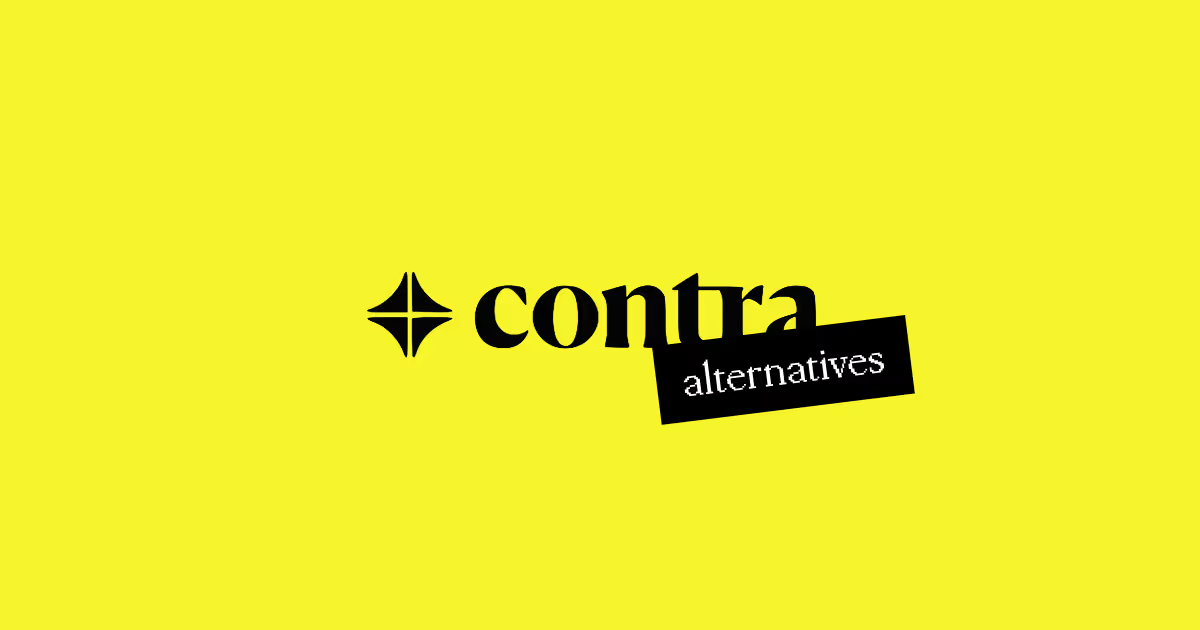Should you go with a Payment Processor (PP) or a Merchant of Record (MoR)?
This single decision determines the answers to so many questions such as:
- "Who will calculate sales taxes in different countries?"
- "Who will handle an international chargeback request?"
- "Who will ensure compliance with the European Union's data protection laws?"
That's why this is never just a simple technical integration. The choice you make can impact
→ your global operations,
→ your ability to stay legally compliant,
→ your protection from payment risks, and
→ even your financial sustainability.
So yes, welcome to the showdown: Merchant of Record vs. Payment Processor!
What is a Payment Processor?
A Payment Processor acts as a bridge between you and your customer.
Their purpose, when you sell a service, is to:
- Securely transmit the payment,
- Authorize the transaction, and
- Technically facilitate the money transfer.
However, a Payment Processor (PP) is simply a tool that facilitates payments. It doesn't concern itself with anything other than the secure transfer of funds.
How does a Payment Processor work?
Let me show you the 6 steps a customer goes through when you sell a service using a PP:
- The customer enters their card details into the payment form on the website.
- The information is encrypted and processed through the payment system (PP).
- The PP sends this information to the bank and requests authorization for the transaction.
- The bank checks the card's validity and the account balance.
- The bank then either approves or declines the transaction.
- If approved, the PP transfers the payment to the seller's account.
In this model, protecting the customer's card information is the most critical point. To do this, complying with specific security standards (PCI-DSS) is a must.
PP systems make this easier with a method called tokenization. Instead of using the actual card details, a secure "token" that represents them is used. This way, the actual card information is never stored, and transactions occur in a safe environment.
What is a Merchant of Record?
You are a freelancer. You sold a service. If you sell it yourself, what are you responsible for?
- Invoicing & documentation
- Global VAT compliance
- Receiving payments
- Refund management
Each of these requires separate effort.
A Merchant of Record (MoR) is a payment infrastructure that not only transfers payments but also ensures that the entire process is compliant with the law.
For example, Ruul is a MoR.
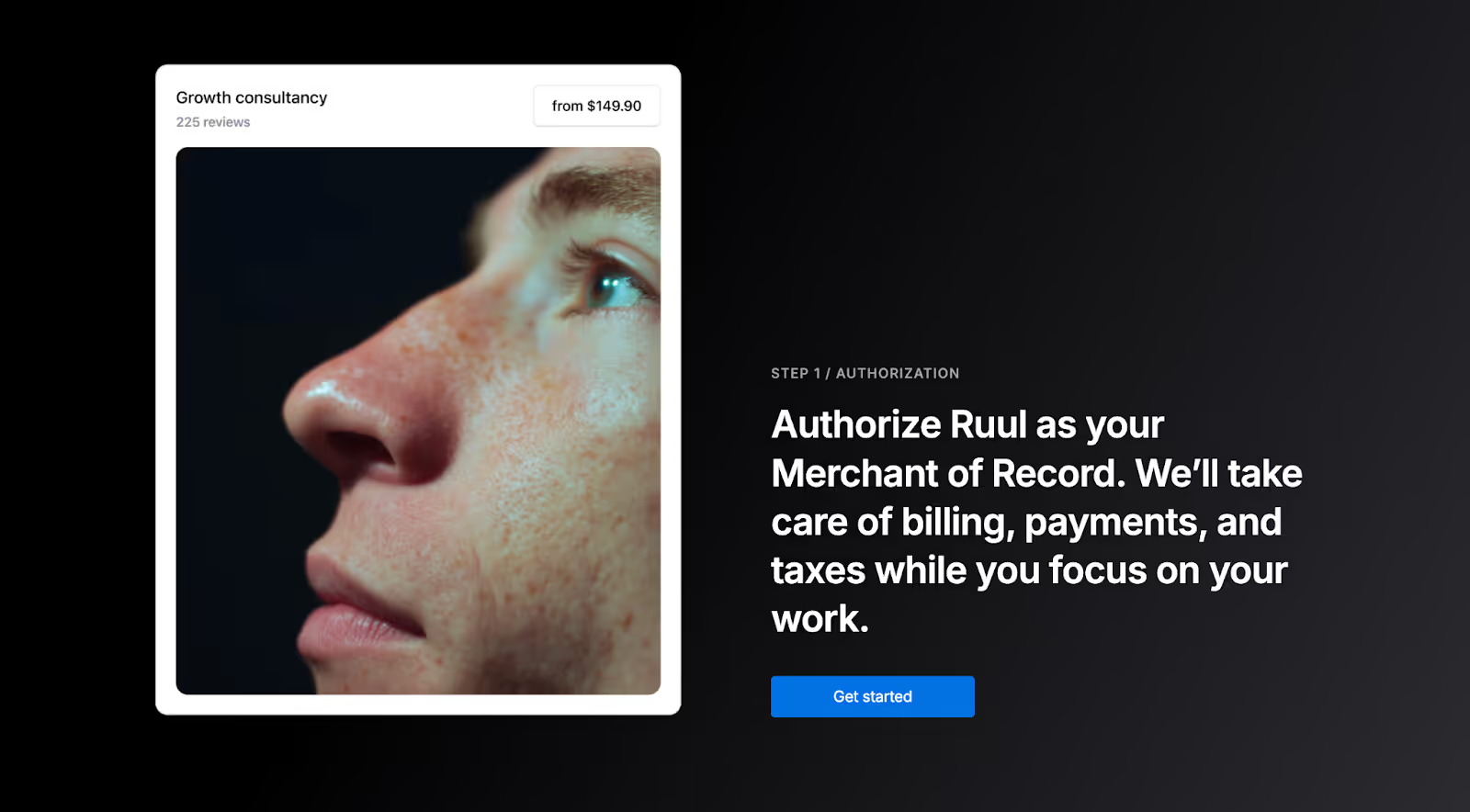
How does a Merchant of Record Work?
Customers pay an MoR in the same way they would a Payment Processor. But in the background, a series of legal transactions is also taking place:
- Your customers make the payment directly to the MoR platform. This is the first legal transaction between the customer and the MoR.
- Simultaneously, the MoR legally purchases that product or service from you. This creates the second legal sale, between the MoR and your business.
- The MoR then deducts its own commission, transaction fees, and any applicable taxes (like VAT) based on the customer's country, and pays the remaining amount to you.
And you won't even be aware of all these complex yet necessary legal processes happening in the background—the MoR does its job silently.
The core difference between MoR and PP
This fundamental distinction between an MoR and a PP radically changes how responsibilities are divided and, ultimately, how revenue is shared.
While a PP "facilitates" a transaction, an MoR "takes on" and "resells" it.
Who takes on the responsibilities: Merchant of Record vs. Payment Processor
The key difference between the two models really comes down to the division of legal and operational responsibilities.
1. Tax obligations
- PP: For every product or service you sell, it's your job to calculate, file, and pay the correct VAT or similar indirect taxes based on the customer's location. And remit them to the respective tax authorities in that country.
- MoR: It automatically calculates all indirect taxes—like Sales Tax, VAT, and GST—that apply based on the customer's country, state, or region. The MoR collects the tax from the customer and then files and pays it to the relevant tax authorities on time.
2. Legal responsibilities
- PP: With a Payment Processor, ensuring your payment infrastructure and website are compliant with PCI-DSS standards is ultimately your responsibility. When collecting customer data, you are required to comply with personal data protection laws like the GDPR (European Union).
- MoR: Since the Merchant of Record is the legal seller for the transaction, it assumes all related financial and legal liability. In the event of a potential legal dispute, consumer complaint, or financial audit, the MoR is the party that will be held accountable.
3. Risk, fraud, and chargeback management
- PP: When a customer disputes a transaction through their bank (a chargeback), the responsibility is yours. This means you have to understand the reason for the dispute, gather evidence to defend the transaction, correspond with banks, and manage the entire process.
- MoR: They take on the entire risk of chargebacks and the process of managing these disputes. This protects you from both the direct financial losses that chargebacks cause and the operational costs of managing the process.
4. Payment integrations
- PP: As you expand into global markets, the operational burdens are entirely on your shoulders. This includes integrating popular local payment methods for each market and staying up to date with each country's unique consumer rights and regulations.
- MoR: They offer a wide variety of options, such as globally accepted credit cards, digital wallets, and local payment methods. An MoR manages the relationships with banks and payment processors and negotiates transaction fees on its own behalf.
5. Customer support and refunds
- PP: You must directly answer all customer inquiries related to payments, such as billing errors, payment issues, refund requests, and subscription management. If your sales volume is high, you may need a separate department dedicated solely to this purpose.
- MoR: An MoR issues invoices to the customer that comply with the legal regulations of their country. They handle customer support requests related to topics such as payments, invoices, refunds, and subscription cancellations.
Pros and Cons: Merchant of Record vs. Payment Processor
Advantages of a Merchant of Record
1. Go global instantly
You can sign up for a MoR platform in seconds and start selling your services to customers in any country you choose, all in a legally compliant manner.
When you work globally with an MoR, you don't have to worry about:
- Setting up local legal entities in different countries,
- Registering with tax authorities,
- Opening local bank accounts,
- Having legal anxieties,
- Or dealing with costly processes.
Especially if you're an independent worker with limited resources, it can reduce your global market entry time from months to days.
2. Offer flexible payment methods
If you're working globally, your payment methods need to be satisfyingly flexible, both for you and your clients.
MoR platforms have more flexibility in this regard than Payment Processors. Your client can pay by bank transfer, credit card, or digital wallet. At Ruul, we've even added cryptocurrencies to this list.
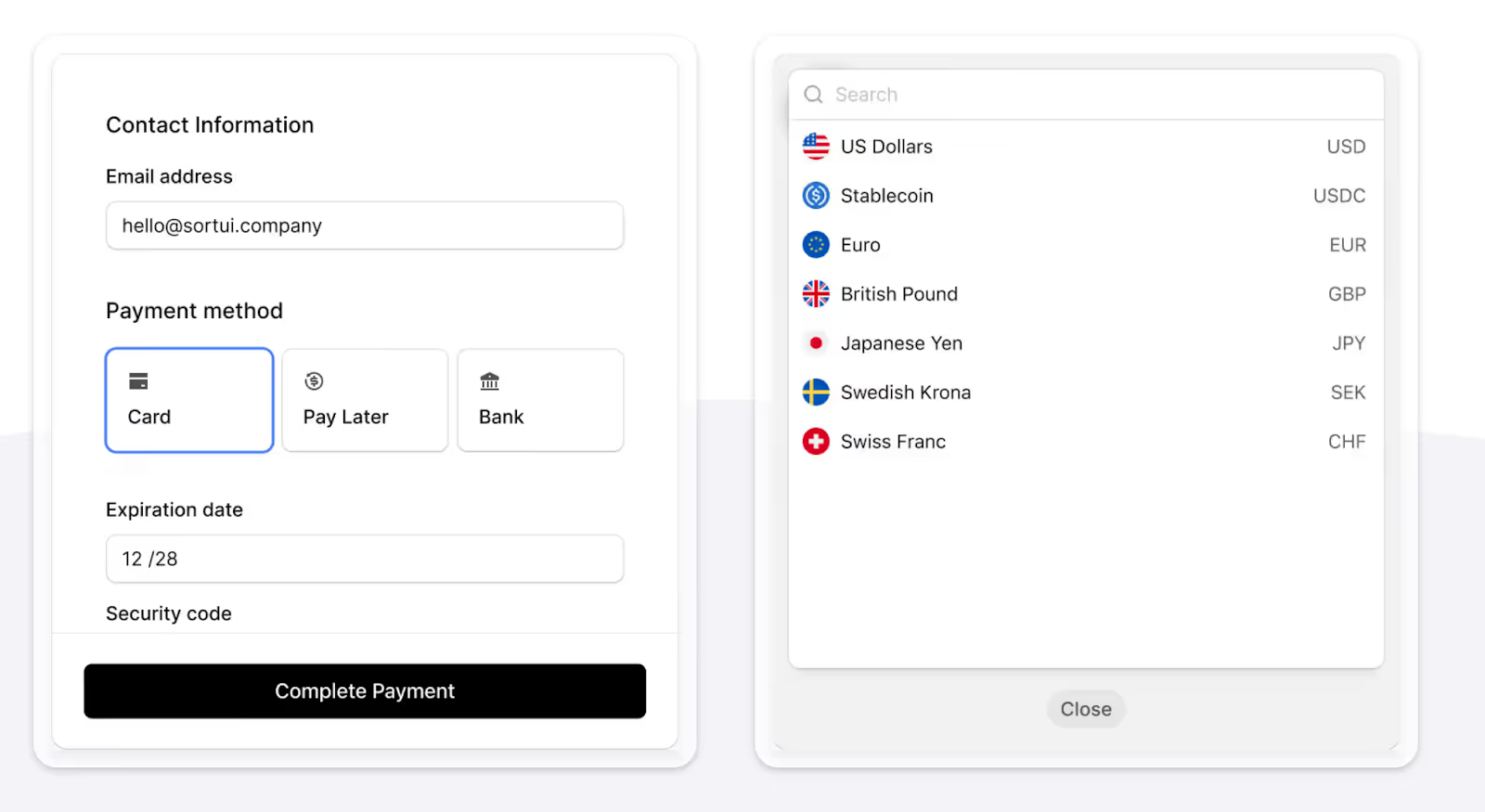
Even if your client chooses to pay with a credit card, you can receive USDC through our Binance integration. It also supports foreign currency and crypto payments, so you don't have to deal with details like exchange rate differences.
3. Focus only on your work
You won’t have to spend time struggling with tax calculations, compliance, or fraud prevention. You can stay focused on growth.
This frees you up to direct their full attention toward product development, marketing, and customer acquisition.
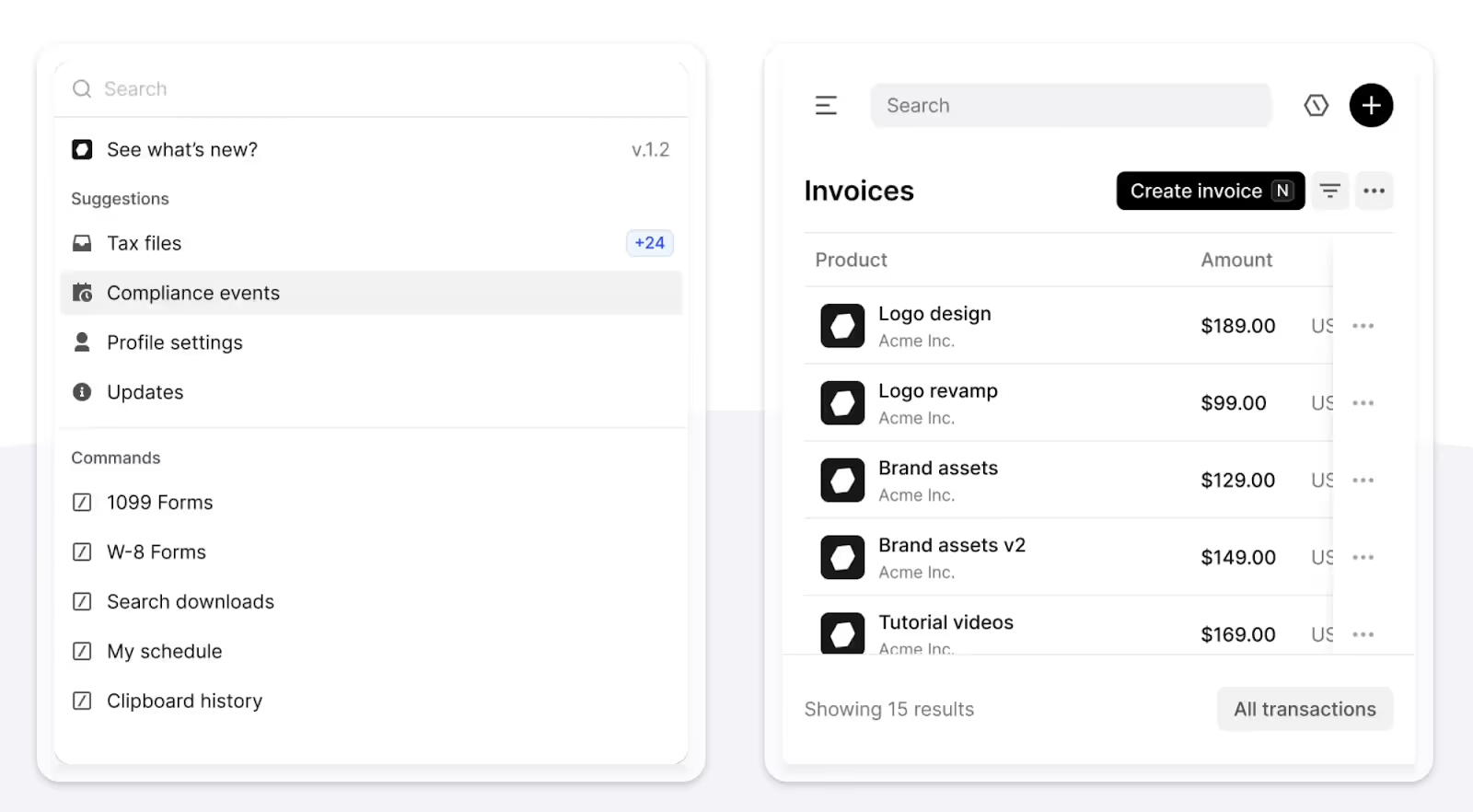
4. Eliminate risks
Transferring all financial and legal risks (like fraud, chargebacks, penalties for non-compliance, etc.) to an MoR creates a predictable cost structure for your business. This protects you from unexpected penalties or losses.
5. Resolve disputes quickly
Not every project goes smoothly. A client might dispute a payment, or a misunderstanding can occur. When disputes happen, having an MoR platform behind you allows you to defend yourself more effectively.
Disadvantages of a Merchant of Record
1. Potential loss of brand control
Having the MoR provider's name appear on the customer's credit card statement can weaken your brand recognition or brand presence. But if you're a freelancer, believe me, this isn't a major problem. What matters for clients is easy payment.
2. There can be cash flow delays
While payments in a PP model usually land in your account within a few days, some MoRs transfer the money they collect to you according to their own payout cycles (for example, once a month or once every two weeks).
But this really depends on which MoR platform you choose.
For instance, let me give you an example from Ruul. While you can receive crypto payments at lightning speed, other payments will be in your account within one day at most.
3. Sales can be restricted
To manage their own risk, MoRs reserve the right to restrict or completely reject the sale of certain products (e.g., some digital content, subscription models) or business models that they consider to be high-risk.
Advantages of a Payment Processor
1. You have complete brand control
You can align every stage of the payment process with your personal brand's design. Plus, your business name appears on the customer's statement, which earns you bonus points for building brand awareness, trust, and loyalty.
2. You build a direct customer relationship
When a customer has a payment-related issue, they contact you directly. This enables you to
- resolve the problem quickly,
- gain a deeper understanding of your customer, and
- transform the interaction into a positive experience, ultimately increasing customer loyalty.
Disadvantages of a Payment Processor
1. The costs are misleading
A Payment Processor might seem low-cost, but that's a huge misconception. When you look at the facts, the Total Cost of Ownership for this model is often higher. That's because when you work with a Payment Processor, you'll need to get consulting on many different fronts.
Expenses such as international tax consulting, accounting services, legal compliance tracking, fraud prevention software, and staff time spent managing chargebacks will create significant "hidden costs."
2. All the risks are on you
Losses from fraud, the cost of every lost chargeback, penalties for data breaches, and all the financial and reputational risks from failing to comply with legal regulations fall entirely on you.
This can not only lead to unexpected out-of-pocket expenses but also increase your workload and lead to burnout.
3. Going global is tough
Entering each new market requires learning and implementing that market's tax laws, payment habits, and legal requirements from scratch. This is a barrier that significantly slows down global growth and makes it more expensive.
How to choose the right Merchant of Record in 7 steps?
1. Flexible payment options for your clients
The first factor to consider when choosing an MoR is how flexible the platform is in terms of payment methods.
You need an MoR that supports your clients' preferred payment options, whether they're paying by credit card or bank transfer. Flexibility is essential because different clients will want to pay through various channels.
2. Seamless cross-border currency conversion
If you have a global client base, you need to be able to receive international payments. When clients are in different parts of the world, currency conversion and cross-border payments shouldn't become a hassle.
A good MoR saves you from dealing with volatile exchange rates and high conversion fees by automatically converting payments into your preferred currency.
3. Taxes shouldn't be a headache
As a freelancer working globally, spending your time and energy calculating tax rates in different regions means you're channeling your energy into the wrong things.
That's why you should make sure the MoR platform you choose automates tax collection and reporting. This is crucial for avoiding tax penalties.
📌 Ruul automatically calculates sales tax or VAT based on the transaction's location, so you stay compliant with tax laws.
4. Fast and reliable payouts
Delayed payments hit you financially, and they can also be emotionally draining. Once a project is complete, you need to get paid on time, both to cover your personal expenses and to pay your team members if you have a team.
For this reason, when choosing an MoR platform, be sure to check their payout schedules and speed. In this day and age, getting paid within one day at most and having the option to accept cryptocurrency for urgent payments are incredibly important.
📌 With Ruul, crypto payments are instant, and other payment requests are in your account within one day.
5. Secure transactions and fraud prevention
A huge part of any sales transaction depends on the trust a customer has in you. If there's trust, there's a high probability of a sale. That's why it's critical for customers to feel secure when making a payment.
As you do your research, make sure the MoR platform offers secure payment processing solutions that protect sensitive customer data and prevent fraud. This will help you maintain customer loyalty in the long run.
6. Support for your products and business model
For example, say your client buys a recurring service from you every month. You want to automate this, so you decide on a "subscription" plan. If your MoR doesn't support this, it becomes difficult to execute your plans.
Even if you don't have such plans at the moment, make sure to choose the right MoR to account for the possibility of shifting to different sales models in the future.
📌 At Ruul, we allow the sale of digital products, online services, SaaS software, and subscription-based freelance service packages.
7. Responsive and human customer support
If you encounter issues with payments, taxes, or any other aspect of the process, you'll need a responsive support team that can resolve your problems promptly. That's why you should ensure the support team consists of real people and responds promptly.
📌 Ruul has a fast customer support team made up of real people. See this comment on Trustpilot:
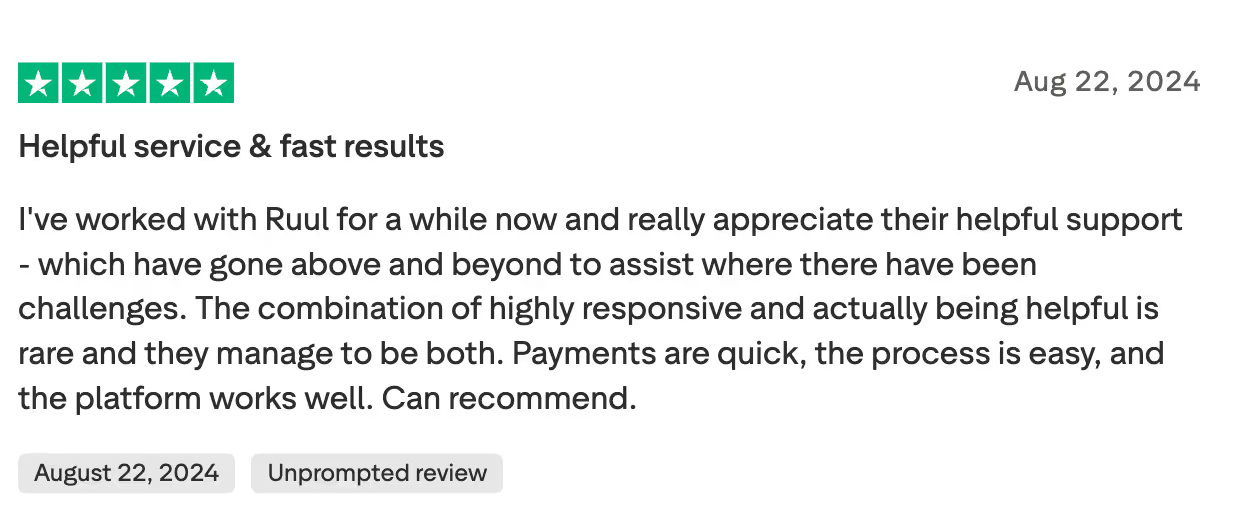
Some of the popular Merchant of Record and Payment Processor platforms
Here are some of the popular Merchant of Record and Payment Processor platforms that freelancers and entrepreneurs are frequently using in 2025.
Merchant of Record (MoR) platforms
1. Ruul

That's us. We're a user-friendly MoR platform designed by freelancers, specifically for freelancers. We let you sell digital products, online services, and subscription & membership in 190 countries and with 140 currencies (including crypto).
We handle:
- Tax compliance,
- Invoicing,
- Payment collection, and
- Transactions with the client.
The formula for freelancers: rapid globalization + zero legal burden, all at Ruul!
Pricing: A pay-as-you-go model—a flat 5% for every transaction. No hidden fees.
2. Paddle

Paddle is a popular MoR platform, especially for entrepreneurs and businesses selling SaaS, AI, and applications. It addresses the challenges of global sales, including VAT, sales tax, compliance, and fraud.
Pricing: 5% + 50¢ per Checkout transaction.
3. Dodo Payments
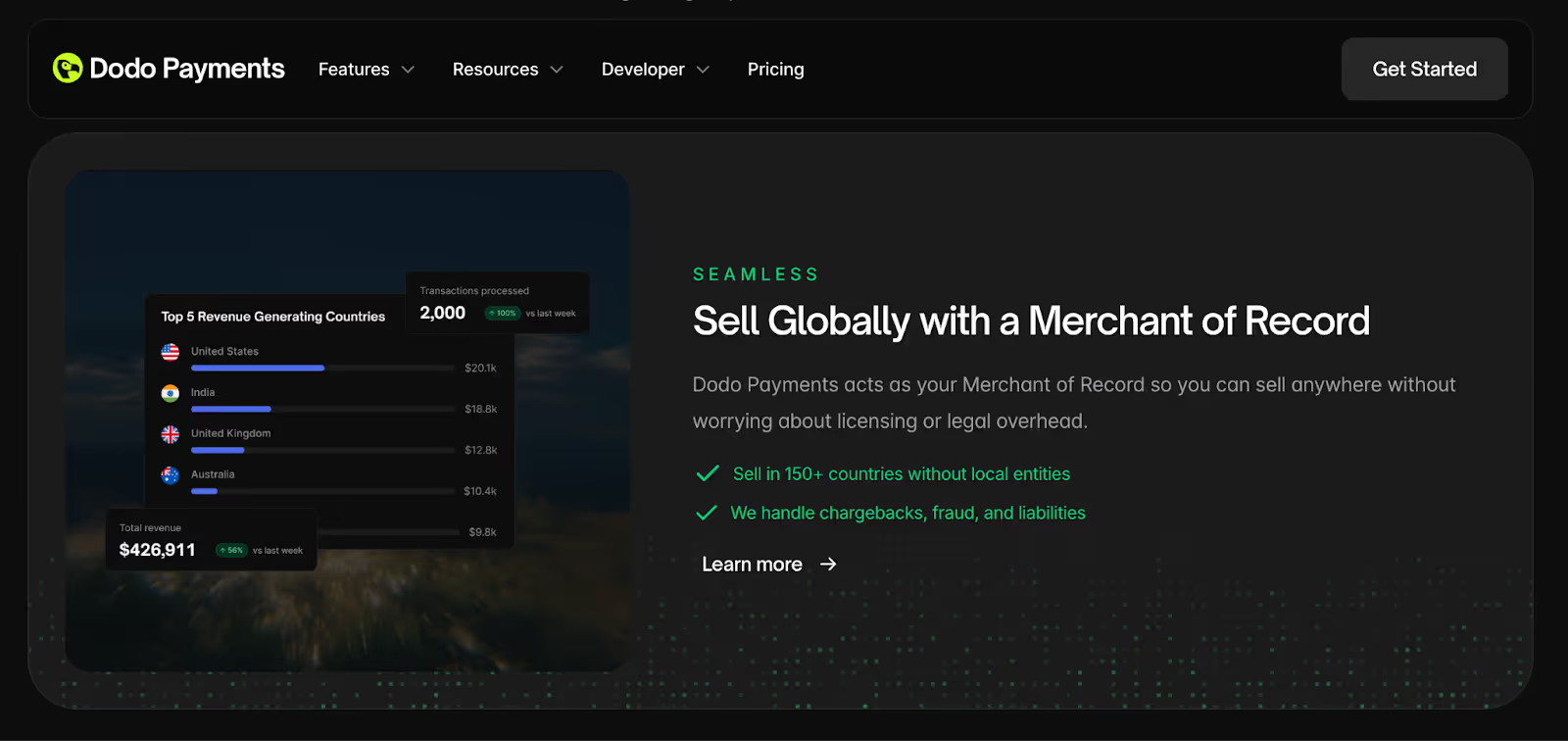
Dodo Payments is a full-service MoR model for digital product sellers and developers. It offers 25 local and global payment options, including Apple Pay, and comes with GST, VAT, and sales tax automation.
Pricing: 4% + 40¢ per transaction.
4. Gumroad
Gumroad is a frequently used MoR among freelancers, digital content creators, and those who sell digital products. Online courses, consulting services, e-books, and graphic materials are among the most popular digital products offered here.
While it's a good example of an MoR, its commission fee is relatively high compared to other platforms.
Pricing: 10% + $0.50 USD.
Payment Processor (PP) platforms
1. Stripe
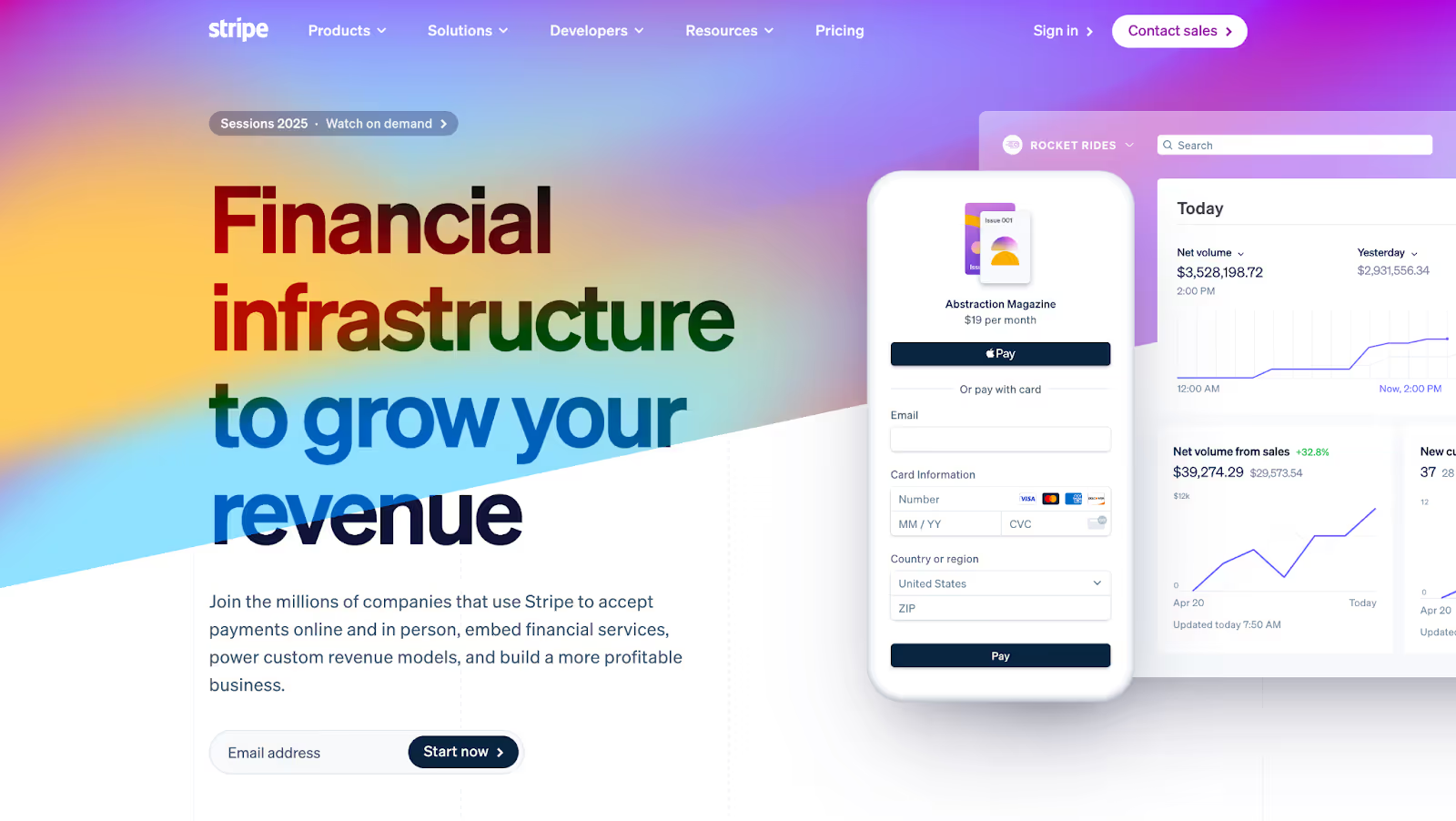
This is one of the most used Payment Processors by independent workers. It's active in 195 countries, and you can process transactions in over 135 currencies.
For example, if you have a personal social media account where you sell your services, you can receive payments through Stripe. You can also integrate Stripe into your personal website to build trust with your clients.
Pricing: Stripe's commissions can vary depending on your chosen payment method, currency, and country. For domestic cards, they typically charge 2.9% + 30¢ per transaction.
2. PayPal

This is one of the world's most well-known digital wallets. It operates in over 200 regions and supports 25 different currencies. It offers easy integration, but all seller responsibilities still rest with the user. Its chargeback management, in particular, can be weak.
Pricing: Since PayPal's fees are pretty variable, we can't provide an average commission rate. However, the "PayPal Merchant Fees" page on their website can provide you with assistance.
3. Wise (formerly TransferWise)

Wise is available in 140 countries and supports 40 different currencies. It cannot be used for direct payment acceptance, but can be integrated with PPs and is a preferred choice for sending and receiving cross-border payments.
Pricing: Transaction fees are stated to start from a minimum of 0.61%. To find out the actual commission you'll pay, you can use the Wise Fee Calculator.
Decision checklist: Ask yourself these 5 questions
Suppose you want to move forward in the global market as a freelancer. In that case, you shouldn't just focus on the commission when choosing your payment infrastructure, but also on the associated risks and operational load.
The following questions will help you choose the right model:
1. What is my market focus?
- Will I only be selling in my own country? (If yes, a PP is a viable option, but an MoR can still significantly simplify your operations.)
- Am I aiming to sell in many countries at the same time? (If yes, seriously consider an MoR.)
2. What are my resources and expertise?
- Do I have the time, knowledge, and budget to manage issues like international taxes, legal compliance, and fraud management? (If no, an MoR is a safer start. If yes, a PP could be more profitable.)
3. How important is brand identity to me?
- Is it an absolute priority for my own brand to appear on the customer's credit card statement and during the payment process? (If yes, choose a PP.)
4. What is my cost priority?
- Is my priority to pay the lowest commission per transaction, or to have a predictable total cost that includes all hidden costs? (For the lowest commission, choose a PP. For a predictable total cost, choose an MoR.)
5. What is my growth strategy?
- Is my priority to launch in the global market as quickly as possible? (If yes, an MoR is a strategic accelerator.)
- Do I prefer to grow more slowly, in a controlled way, learning about each market one by one? (If yes, a PP offers more control.)
Meet the best MoR for freelancers: Ruul
If you've decided that your payment infrastructure needs to be an MoR, then meet Ruul—the best MoR platform you can choose as a freelancer!
No matter what sector you're in, Ruul is a full-featured MoR built by independents, for all independents. We're active in 190 countries and support 140 currencies, including crypto, so that you can sell your services without borders.
We also offer multiple methods so you can sell your services with the sales model you want:
Subscription software, freelance service packages, digital products, and subscription services. Whichever way you need to make money, it's right at your fingertips.
At Ruul, we don't charge you a monthly fee. We've created a freelancer-friendly system where you only pay for what you use. We charge a flat 5% for each billing transaction (which either you or your client can pay).
Take the first step by joining Ruul, and add your name to the thousands of successful freelancers reaching 190 countries.
FAQs
What is the difference between a payment processor and a merchant of record?
The merchant of record sells the goods or services. The payment processor is the financial technology company that technically facilitates the payment transaction on the merchant's behalf.
Is PayPal a payment processor?
Yes, PayPal acts as a payment processor. It's a payment service provider that bundles a merchant account and a payment gateway, allowing businesses (the merchants) to accept online payments.





.avif)
